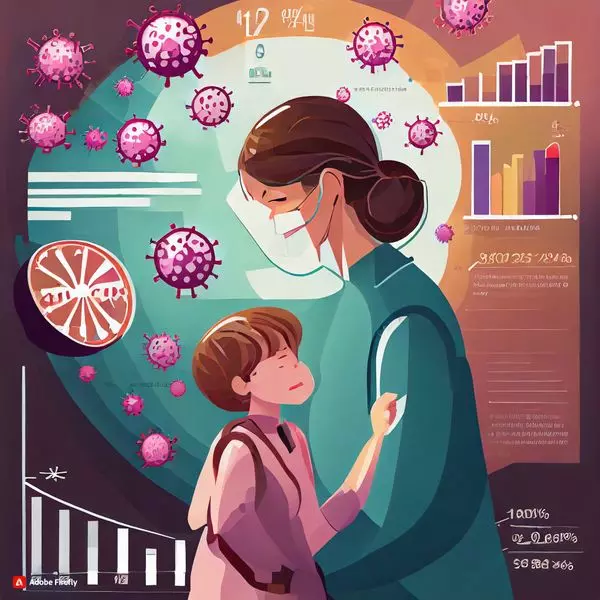
Image Credits: Adobe Firefly
Impact Of Childhood Trauma On COVID-19 Outcomes: A Comprehensive Study Analysis
Writer: Tanya Chaturvedi
As a dedicated content writer, I thrive on the art of storytelling through various media forms. My passion lies in creating engaging, informative and visually captivating content that resonates with audience across platforms.
India, 10 Nov 2023 12:18 PM GMT
Editor : Ankita Singh |
A literature lover who likes delving deeper into a wide range of societal issues and expresses her opinions about the same. Keeps looking for best-read recommendations while enjoying her coffee and tea.
Creatives : Tanya Chaturvedi
As a dedicated content writer, I thrive on the art of storytelling through various media forms. My passion lies in creating engaging, informative and visually captivating content that resonates with audience across platforms.
A recent study conducted by researchers at the University of Pittsburgh, US, has uncovered a concerning correlation between childhood trauma and the severity of COVID-19 outcomes in adulthood.
A recent study conducted by researchers at the University of Pittsburgh, US, has uncovered a concerning correlation between childhood trauma and the severity of COVID-19 outcomes in adulthood. The analysis, based on data from over 151,200 adults of middle age or older in the UK, suggests that individuals with a history of childhood adversity, such as abuse or neglect, face a higher risk of hospitalization or mortality from COVID-19.
Published in the Journal of Epidemiology and Community Health, the study found that higher self-reported childhood adversity was associated with 12-25 percent higher odds of both COVID-19 hospitalization and mortality among adults.
Lead researcher Jamie L. Hanson, an assistant professor in psychology at the University of Pittsburgh, emphasized the long-lasting impact of early-life trauma on health. Hanson stated, “We know that COVID-19 is related to excessive hospitalization and death in the UK and in the United States. And there’s emerging research finding that facing adversity, abuse or neglect, early in life, could have sizeable effects on physical health.”
The study is among the first to bridge the gap between the impact of childhood trauma and the severity of COVID-19 outcomes. Hanson noted the importance of understanding an individual’s early development in addressing disparities in COVID-19 impacts.
“We may need targeted interventions for individuals and certain communities affected by childhood adversity to lessen the pandemic’s lasting impact,” Hanson suggested. The researchers highlighted the potential for policies and interventions to mitigate the effects of COVID-19 in those who have experienced childhood adversity.
Elaborating on the need for further research, Hanson stated, “Adversity may lead to risk for negative outcomes and the potential to have long-COVID. We need to complete more work to understand how adversity gets ‘under the skin’ and increases vulnerability to poor health after COVID-19 infections.”
The study's findings open the door for more focused and global research, with the aim of limiting adversity-related negative outcomes in future pandemics. As the world continues to grapple with the impact of COVID-19, understanding and addressing the broader determinants of health becomes increasingly crucial.
Also Read: RBI Grants In-Principle Approval to PayGlocal For Payment Aggregator Services
 All section
All section














